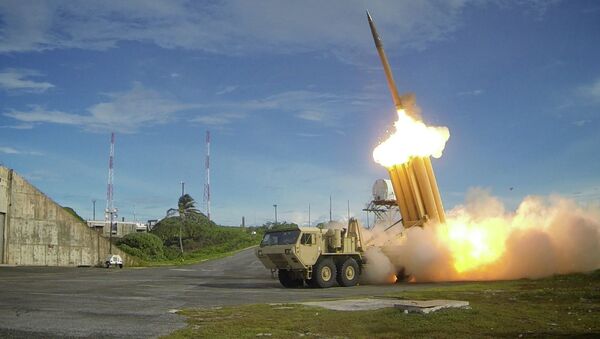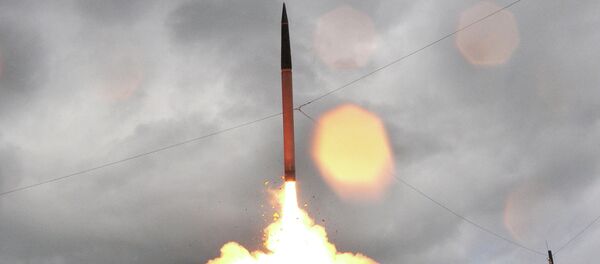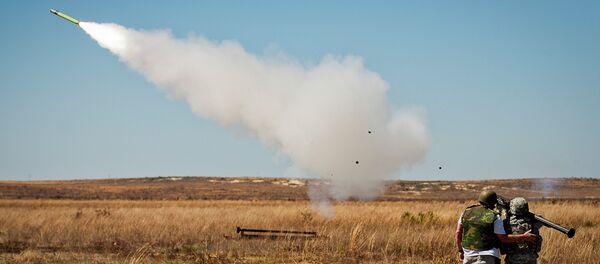In a commentary published earlier this month by the Institute, a think tank for the Ministry of Foreign Affairs in Beijing, and entitled 'Why Is China Unhappy WIth Deployment in the ROK?', Jianqun explains that the US is damaging Asia-Pacific regional stability in pushing its THAAD system for South Korea, and quotes China's Foreign Ministry spokesperson Hua Chunying, who told a briefing in October 2014 that the US policy "to seek unilateral security" in the region "runs against regional stability and mutual trust as well as peace and stability in Northeast Asia."
"Relevant countries should not take their own security concerns as excuses for damaging others’ security interests,"
cautioned the spokesperson, commenting on the occasion of the US's delivery of X-band radar to the Kyogamisaki military base in Kyoto. The X-band radar, which the US is deploying in Alaska and Japan, has a surveillance distance of 1,300 kilometers, and as such covers large areas of China and Russia.
Jianqun points out that "China’s senior officials take every opportunity to express their concerns over the US missile defense program," citing a recent warning from the Chinese Ambassador to South Korea Qiu Guohong that THAAD deployment would hurt Sino-Korean relations, explaining that "The THAAD would have a range of around 2,000 kilometers, which goes beyond the goal of countering missiles from North Korea."
"Chinese experts consider the US anti-missile system in China’s neighborhood to be a replica of its strategy in Eastern Europe against the Soviet Union. The ring encircling China can also be expanded at any time in other directions," says Jianqun.
As well as publically expressing its concerns about anti-ballistic missile programs placed in South Korea, China is also closely monitoring negotiations between the US and India on missile defense cooperation, says Jianqun, since the integration of India into the US global missile defense system "would profoundly affect China’s security."
The US has about 28,500 troops stationed in South Korea, headed by General Curtis Scaparrotti, commander of United States Forces Korea, who last year told the media that there was "a US initiative" to deploy THAAD in South Korea, and explained, "in fact, I recommended it as the commander."
When asked last week about whether the deployment would go ahead despite China's oft-repeated opposition, Scaparrotti said, "Personally I think this is a decision for South Korea, having to do with the defense of their country, and from my perspective as a commander there, defense of our troops."




